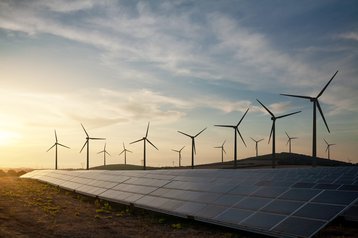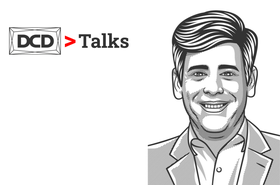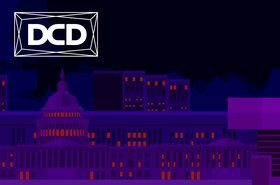The power problem. Perhaps more accurately we should say the power problems. They are affecting all of us, whether it's from the issues surrounding using greener sources, the instability of the grid, or the sheer quantity of options.
One thing is for sure and that is, it’s getting worse. With moratoriums, widespread blackouts, and the attack on Ukraine, we are in treacherous waters as a planet and as an industry.
The general population is becoming more aware of this. And while that has the potential to bring positive change (and hopefully help combat climate change) it is also making people acutely aware of the energy shortage and far less enthusiastic about sharing.
As Dave Sterlace, strategic account manager at Hitachi Energy, explains in a recent DCD>Talk, it isn’t immediately obvious to outsiders why the data center industry needs such a big share of the grid’s power.
“There are a couple of aspects. One is that there's no power, and the other is because data centers use a lot of power. A lot of folks look at it and say there's no actual manufacturing there. So, what, the power is just going to waste? It's just ‘blinky green lights’. What's the point?” explains Sterlace.
“People don't understand the scale of the things we're doing, but they appreciate that because we throw 30,000 servers at weather forecasting, weather forecasting is a little better, and things like that.”
But the fact is, a lot of companies (big and small) are taking steps toward reducing their impact on the planet and getting ahead of likely regulations. For example, hyperscalers like AWS and Microsoft have really aggressive climate pledges to reduce climate dependency. As an industry, we are attempting to trailblaze the move to greener power, not to follow others.
“But it's not going to be solved overnight,” admits Sterlace. “Obviously, right now there are drop-in retrofit solutions available to go from diesel to alternative fuels. Then there are other things that we can do.
“Traditionally, a data center has had utility power or alternate power, and what we're really talking about is what we do in between. Can the data center be a more active part of the grid? Can it be part of the solution rather than part of the problem?”
Grid-interactive data centers are doing just this, and we are seeing them pop up more and more. Whether it is merely sending off excess power to the grid, or actively producing renewable energy – for example solar, wind, hydroelectric, and even hydrogen – on-site at the data center, grid-interactive facilities are key to a more reliable power system.
“Along with that, one thing we learned in the substation is that the higher the voltage you connect with, the more reliable your connection is. So if we connect at the local level with 5V for example, the chances are that your node is a lot more prone to outages,” adds Sterlace. “So, if you collect connected transmission levels at hundreds of kilovolts, a lot of clients are able to take advantage of that and become more reliable.”
On a smaller scale, individual facilities can also reduce wasted capacity.
“You can't manage what you can't measure. So let's get the digital tools in place, then we can start gathering the data, and then we can act upon the data,” says Sterlace.
The question is, can we build intelligence into our data centers, and can you retrofit it? Sterlace argues a firm yes.
“There’s a transformer we have that is oil filled, and the oil actually acts as a health monitor. We have dissolved gases in the oil, and then by monitoring and measuring them, we can understand what's going to happen with the transformer itself. It can sense when things are starting to fail, etcetera, and this technology was developed for utilities that have broad networks.”
Whatever the power problem, we’ve now reached a point where we have reliable solutions available that can not only provide us with the greener solutions we need for today, but can help ensure that we are able to sustain our industry – and our planet – for tomorrow and beyond too.
Tune into the DCD>Talk to learn more about the energy transition




